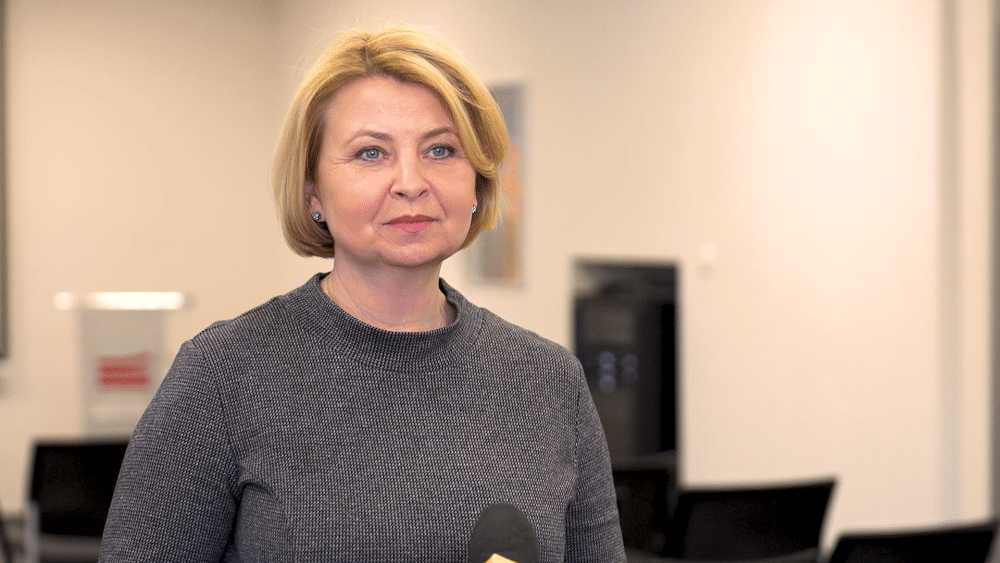In 2024, companies in Poland started the year in a better mood than the previous one, according to a study by the Polish Institute of Economics (PIE). The monthly Business Sentiment Index rose in January to 101.2 points, indicating a predominance of positive moods. The better indicators are in larger companies, especially in services, production, and construction. “The future is looking more optimistic because entrepreneurs are increasingly complaining less about the uncertainty of the economic situation” – evaluates Katarzyna Dębkowska, head of the Economic Foresight Team at PIE.
“The mood among entrepreneurs in January 2024 is better than a month ago. The monthly business sentiment index points to a level of 101.2 points, which means that this is a level above 100 points, creating a barrier that separates positive from negative opinions. So we can say that entrepreneurs are entering the year 2024 with some optimism” – Katarzyna Dębkowska tells Newseria Biznes agency.
The PIE study shows that the current MIK index is 6.3 points higher than the previous year’s reading for January. Three components of the MIK are above the neutral level: wages (127.2 points, an increase of 7.9 points m/m), financial liquidity (118.6 points, an increase of 3.8 points m/m) and employment (105.3 points, a decline of 1.2 points m/m).
The high value of wages was influenced by a large proportion of entrepreneurs (44%) planning to raise wages, related to the increase in the minimum wage in Poland from January this year (from 3600 to 4242 PLN gross). The assessment of companies’ financial liquidity remained above 100 points throughout 2023, confirming that, despite rising costs, businesses are in a relatively good financial condition. Companies also continue to want to hire workers. However, the positive assessment of companies’ financial liquidity does not translate into their investments. The January reading of the investment component is 84 points (a decrease of 1.8 points m/m) and has been below the neutral level since 2022.
“Moods are better, but this is a kind of generalization, depending on the size of the company and the industry, these moods are different and our index shows that. Monthly Business Sentiment Indexes are considerably better in large or medium-sized companies, optimism is worse in small or micro-enterprises,” says the expert.
Positive moods prevail in services, production, and construction (respectively: 109.6 points, 107.6 points, and 105.4 points). MIK values increased among manufacturing companies (by 3.1 points) and those engaged in construction (by 2.3 points). A decrease in the value of MIK m/m was recorded by service companies (by 4 points) and trade companies (by 0.5 points).
“Many companies also have a certain uncertainty about what the future will look like. And here again, there is a certain diversity in perceiving the future, depending on the industry or size. Large and medium-sized companies see the future more optimistically than micro-enterprises,” notes Katarzyna Dębkowska.
This time, PIE also asked companies about their assessment of the future of their company and the economy of the country. In the latter issue, entrepreneurs are very divided. One fourth of entrepreneurs (23%) believe that the country’s economic situation will improve in the next quarter, but 28 percent believe that it will worsen. 30 percent do not expect any changes.
For comparison, more than half of the respondents do not expect any changes in the situation in the company in the first three months of 2024. One fourth assumes that it will be worse, and 16 percent expect an improvement in the situation.
Micro-companies in particular look pessimistic towards the future – 36 percent believe that the economic situation in Poland will worsen. On the industry side, construction and trade companies expect positive changes in the country’s economy the most, and negative ones – the transport, forwarding, logistics sector.
“I am very curious about this index, we will be asking entrepreneurs about this future every month, so we will also be able to see whether their forecasts correspond with our results of the Monthly Business Sentiment Index,” says the head of the Economic Foresight Team at PIE.
According to entrepreneurs, the strongest influence on business decisions this year will be the increase in the minimum wage (56% of respondents). Weak demand for products and services can also be of great importance (44%). Among the barriers hindering the activity of a company, companies primarily indicate rising labor costs (70% of indications; an increase of 3 percentage points m/m) and energy prices (61%; an increase of 2 percentage points m/m).
“The wage component just means that most entrepreneurs are thinking about raising wages rather than lowering them. In fact, only a small number of entrepreneurs are thinking about lowering wages now, so rising labor costs are now a barrier that bothers entrepreneurs the most,” explains Katarzyna Dębkowska.
Uncertainty about the economic situation ranked third among the barriers. However, it is indicated by the fewest entrepreneurs since the beginning of 2021 (56%; a decrease of 8 percentage points m/m).
“Indeed when the war, energy crisis, inflation increase began, entrepreneurs were very worried and indicated that the uncertainty of the economic situation is a factor that greatly hinders them in their activity. This month we observed a significantly lower reading of uncertainty,” notes the expert.
As she emphasizes, this positively surprised the authors of the study.
“Companies may be counting on operating in more stable conditions, although I think that stability is not yet there and they have to wait for it. However, after the bottom, after all of 2023, when the MIK was below 100 points and indicated a predominance of negative ratings, we now see that this trend is changing. This might also be a signal that the economic situation will improve,” says Katarzyna Dębkowska.
